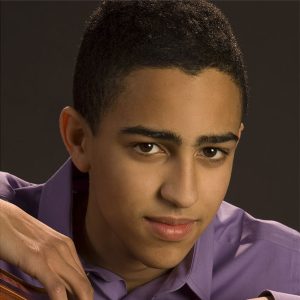
Fantastic Getaways and their Cello-related Aftermath
Lev Mamuya
The house is just like you left it. As soon as you plop your heavy suitcase in the door, you run over to the corner. Ah, how nice to see your cello after such a long absence! You open up the case, and start to play. What are these odd, strange squeaking noises emanating from your cello? Why can’t you play properly? Having just come back from a wonderful vacation in Costa Rica, I am faced with this question: how do I regain the level of technicality that I had before a long absence from the cello? The short answer: with time and lots of varied, and sometimes evil exercises. Now I’m sorry to be sort of a practicing nag two blogs in a row, but it’s necessary for all of us, me probably the most of all.
Taking a break from a piece you don’t need to keep up at the moment, and coming back to it later often provides a fresh perspective and can help improve one’s understanding of the piece. While a small vacation away from the instrument can give you a fresh approach and new excitement, you will be a little rusty. One of the reasons we practice with regularity is to keep our technical facilities running and able. When you’re gone somewhere without your cello, that goes out the window. Slow bows, vibrato exercises, and other pillars of fundamental technique are necessary evils. Even if it’s only at the beginning of your practicing for a couple minutes, do them, and do them slowly. Personally, every teacher I’ve ever had has maintained that slow practicing is important, and here is a good place to apply that.
As for repertoire, it is better to work small sections back up than take a very rough look at whole pieces, especially if you are working on multiple different works at once. Etudes, however frustrating, psychotic, evil, stupid, challenging (should I go on?) they are, are also necessary for regaining technique after absence. That’s what they’re about: mastering a certain niche of technical skill. Also keep in mind your stamina. However active you’ve been on a vacation, your muscles will not be used to the movements of playing the cello. Don’t expect to be able to play Dvorak concerto through at a moment’s notice the day after you come back; regardless of what we think, stamina is a big part of cello playing, and something that is retained by regular playing. Your stamina will build back up naturally, but don’t overdo it at first.
Now, if you do lots of technical exercises, etudes, and section work for one day, does that mean you’ll be fully recovered? The answer, of course, is NO. It does take time as well to get into the rhythm of playing an instrument again. Don’t expect to be perfect right away.
So, when you walk into the door of your house after a vacation without your cello, and you hear how you sound, prepare yourself for the road ahead. It can be hard. It can be frustrating. It will take time. But it will be worth it.
Subjects: Practicing, Pre-College
Tags: cello, cellobello, Lev, Mamuya, practicing, Travel
